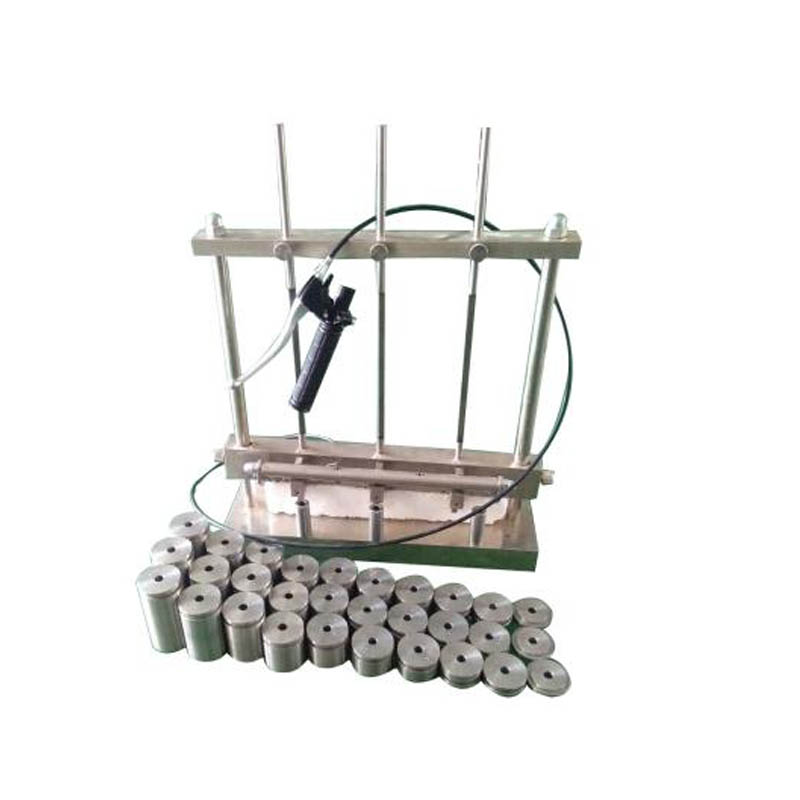Custom Fire Resistance Testing Equipment Solutions for Enhanced Safety Standards
Custom Fire Resistance Test Equipment Ensuring Safety and Compliance
In an increasingly safety-conscious world, fire resistance has become a paramount consideration in various industries, including construction, manufacturing, and transportation. The primary goal is to prevent the spread of flames and reduce the risk of catastrophic events in the event of a fire. To this end, custom fire resistance test equipment plays a crucial role in assessing and certifying materials and structures for their fire-resistant properties.
Understanding Fire Resistance Testing
Fire resistance testing evaluates how long a material or assembly can withstand fire exposure before it fails. This testing is critical for ensuring that materials meet specific regulatory standards and provide adequate safety for buildings, vehicles, and other structures. Common materials tested include insulation, drywall, steel, and various composites. The tests typically measure the ability of a material to withstand fire in various scenarios, assessing factors like temperature, smoke production, and structural integrity.
The Need for Custom Solutions
While standardized testing equipment exists, the unique requirements of different industries and applications mean that off-the-shelf solutions may not always suffice. This is where custom fire resistance test equipment comes into play. Companies often require tailored solutions that can accommodate specific materials, shapes, sizes, and testing protocols. Custom equipment can be designed to replicate real-world conditions more accurately, providing more relevant and reliable test results.
Key Features of Custom Fire Resistance Test Equipment
1. Adaptability Custom test equipment can be adjusted to evaluate a wide range of materials and forms, including complex geometries and multiple material combinations. This adaptability ensures that manufacturers can fully understand how their products will perform under stress.
2. Precision Advanced instrumentation allows for precise measurement of temperature, pressure, and other variables during fire exposure. Accurate data collection is crucial for proper analysis and certification of fire resistance.
3. Realistic Testing Conditions Custom equipment can simulate various fire scenarios, including different flame types, durations, and exposure levels. This capability enables manufacturers to assess the performance of materials in conditions that closely mimic real-life fire incidents.
custom fire resistance test equipment

4. Compliance Many industries are governed by strict fire safety regulations. Custom fire resistance test equipment can be designed to meet specific regulatory requirements, ensuring that all testing is compliant with local and international standards.
The Process of Development
Developing custom fire resistance test equipment typically involves several key steps. First, manufacturers must collaborate with engineers and safety experts to define their specific testing needs and requirements. This collaborative effort helps in mapping out the essential features that the equipment should have.
Next, engineers will create blueprints and prototypes. This phase may involve computer simulations to predict how the equipment will perform before any physical creation takes place. After testing and refining the prototypes, the final equipment is built and installed in relevant facilities.
Finally, thorough operational training is provided to staff members who will be using the equipment. Understanding how to operate and maintain the custom equipment effectively ensures optimal performance and safety during testing procedures.
Benefits of Custom Fire Resistance Testing
Investing in custom fire resistance test equipment offers numerous advantages. First and foremost, it enhances product safety, protecting lives and property. Secondly, this tailored testing can lead to improved product performance. With exacting tests, manufacturers can identify weaknesses in their materials, fostering innovation and improvement.
Additionally, having the ability to conduct on-site testing can significantly reduce lead times for certification and market entry. Companies can respond swiftly to regulatory changes and customer demands, maintaining a competitive edge in the marketplace.
Conclusion
In sum, custom fire resistance test equipment is an indispensable tool for ensuring safety and compliance across various industries. By providing tailored testing solutions, these specialized instruments not only assist in meeting regulatory standards but also foster innovation in fire-resistant materials. As industries continue to emphasize safety, the demand for custom testing equipment will likely grow, making it a vital consideration for any manufacturer committed to quality and safety.
-
Why the Conductor Resistance Constant Temperature Measurement Machine Redefines Precision
NewsJun.20,2025
-
Reliable Testing Starts Here: Why the High Insulation Resistance Measuring Instrument Is a Must-Have
NewsJun.20,2025
-
Flexible Cable Flexing Test Equipment: The Precision Standard for Cable Durability and Performance Testing
NewsJun.20,2025
-
Digital Measurement Projector: Precision Visualization for Modern Manufacturing
NewsJun.20,2025
-
Computer Control Electronic Tensile Tester: Precision and Power for the Modern Metal Industry
NewsJun.20,2025
-
Cable Spark Tester: Your Ultimate Insulation Assurance for Wire and Cable Testing
NewsJun.20,2025
 Copyright © 2025 Hebei Fangyuan Instrument & Equipment Co.,Ltd. All Rights Reserved. Sitemap | Privacy Policy
Copyright © 2025 Hebei Fangyuan Instrument & Equipment Co.,Ltd. All Rights Reserved. Sitemap | Privacy Policy
